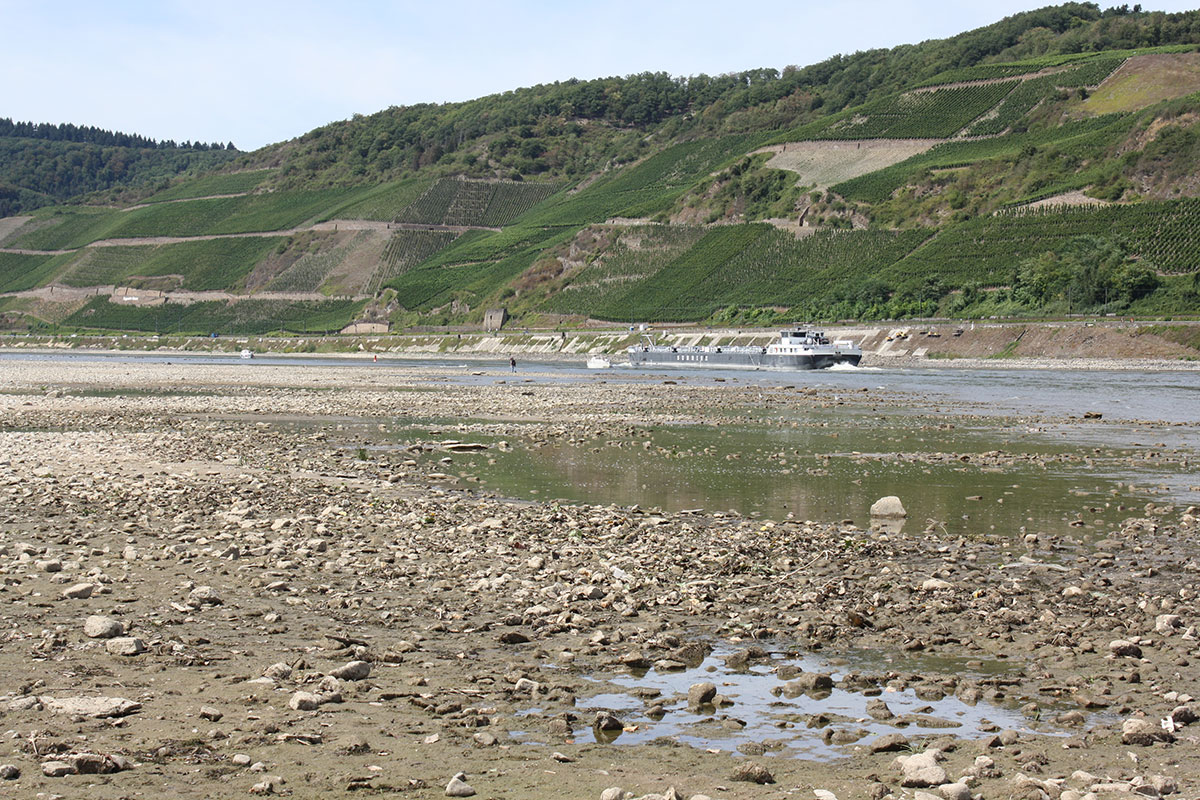- Home
- Publications
- PAGES Magazine
- Climatic and Hydrological Extremes: Linking The Instrumental Period of The Last Decades With The More Distant Past
Climatic and hydrological extremes: Linking the instrumental period of the last decades with the more distant past
Stephan Dietrich, B. Wilhelm, H. Goosse and B.L. Valero-Garcés
Past Global Changes Magazine
27(2)
80
2019
Stephan Dietrich1, B. Wilhelm2, H. Goosse3 and B.L. Valero-Garcés4
PAGES Extremes Integrative Activity workshop, Koblenz, Germany, 18-20 February 2019
Weather and climate extreme events in a changing climate are able to cause major losses; however, their assessment by scientists remains challenging. As summarized in the IPCC Assessment Report 5 (AR5), this is due to their extreme nature, encompassing weather and climate timescales as well as compound events (such as droughts and tropical cyclones). Thus, both observations and proxy analysis (for paleo timeseries) of extremes are limited.
According to the chapter outlines (wg1.ipcc.ch/AR6/outline.html) of the Working Group I contribution to the AR6 there is a need for enhanced process understanding about, inter alia, the mechanisms, drivers, and feedbacks leading to extremes as well as an assessment of potential surprises including case studies across timescales. In addition, the World Climate Research Programme focuses on the Grand Challenge on Weather and Climate Extremes (wcrp-climate.org/grand-challenges/grand-challenges-overview) from both (i) a service perspective, asking what the frequency and magnitudes of various impact-causing extremes are in the near and long-term future and (ii) a science perspective, looking for causes and mechanisms of variability and change in extremes in order to improve the prediction of change.
The aim of the workshop (pastglobalchanges.org/calendar/2019/127-pages/1827) was to produce a synthesis presenting analyses on long timescales in a way that is suitable for non-specialists. In addition, we aimed to reinforce the coordination between existing research lines on climatological and hydrological extreme events of the past including the instrumental era. Being informed about the accuracy of the available data and the robustness of their interpretation is particularly important for scientists outside of the field. Furthermore, this workshop was designed to provide a platform for scientists working on the more recent period to explain their needs and how their techniques could be applied to longer-term changes.
To address these issues, we organized a workshop in the scenic town of Koblenz, Germany, as a follow-up to a splinter meeting at the European Geosciences Union General Assembly in Vienna in April 2018. The workshop was organized and co-sponsored by the International Centre for Water Resources and Global Change (a UNESCO Category 2 Water Centre) and hosted by the Federal Institute of Hydrology in Koblenz, Germany. We brought together 20 scientists from eight different countries (including one who joined remotely) with a mixture of early-career and established scientists working in the following fields: global and regional climate modeling, event attribution, proxy reconstruction based on different archives, and statistical techniques. Nearly all scientists had a focus on floods, low flows or droughts. The workshop participants did not expect a synthesis to cover all of these fields, but rather only for what the group defined as hydrological worst-case events (paleo high-magnitude hydro-meteorological hazards).
The workshop consisted of two sections: first, a series of keynotes for setting the scene and oral presentations from participants presenting their work and fields of interest. Second, a series of parallel breakout groups about (i) worst-case (flooding and drought) events, (ii) the physical mechanisms and (iii) requirements of paleo- and observational data. The participants discussed some prominent examples like the Magdalena flood in 1342, which caused significant hazards in Central Europe (see also contemporary example in Fig. 1), or examples where water managers were already using tree-ring data to assess the impact and extent of droughts.
The participants agreed to publish an opinion paper on the occurrence of these extreme events, the underlying climate dynamics, and the impacts on the landscape and humans as a follow-up to the workshop. An additional focus will be on best-practice examples about the data requirements (quality and discoverability of data) and perspectives for the value of paleodata to increase knowledge about current and future extreme events. This opinion paper will give us the opportunity to reach a wide range of users. With this opinion paper, we are particularly interested in targeting users who are not aware of the relevant information provided by paleoscientists and who do not read the specialized literature on this subject. Similarly, new findings from the modern community should also stimulate the discussion within the paleo community.
Find out more about PAGES Extremes Integrative Activity here: http://pastglobalchanges.org/science/int-act/extremes
affiliationS
1International Centre for Water Resources and Global Change, Koblenz, Germany
2Université Grenoble Alpes, CNRS, IRD, Grenoble INP, IGE, France
3Université catholique de Louvain, Belgium
4Spanish National Research Council, Madrid, Spain
contact
Stephan Dietrich: Dietrich bafg.de
bafg.de
